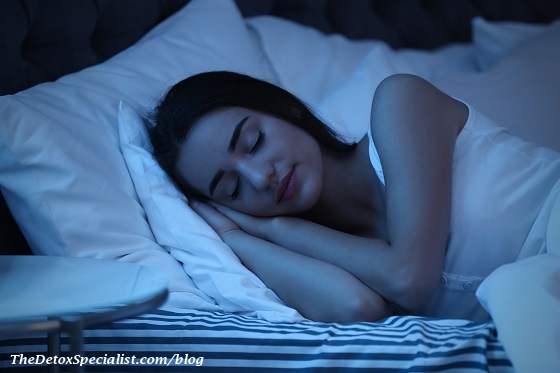
We’ve had clean eating and now we’ve got clean sleeping. If you don’t already know clean sleeping means having at least seven or eight hours of good quality sleep a night regularly. Ten hours of uninterrupted sleep according to Gwyneth Paltrow is even better.
Clean sleeping may be the new term for it but haven’t we been told this before? According to the National Sleep Foundation younger adults (18-25) and adults (26-64) need 7-9 hours while older adults (65+) need 7 – 8 hours.
And what about children? Many go to bed with their phones and tablets and spend time on snap chat with their friends and don’t get enough sleep. Check out here the appropriate time for bed for a 10 year old.
Dr Laura Lefkowitz, a leading nutritional scientist, states that we should really get at least 9 hours a night if we want to keep hormones in balance, have great skin, prevent middle-age spread and age well.
So what’s the deal with sleep?
During sleep our bodies get repaired and detoxified. Anna Brecken, a guest writer on this blog, explains how enough sleep is critical for detoxifying our brains.
Good quality sleep is vital for the function of our immune system as the infographic below shows.
Gwyneth Paltrow says sleep “should be your first priority—even before you think about your diet” but I and others don’t agree. A healthy diet plays an important part in getting quality sleep. You can’t have one without the other although some research on puppies show in the infographic below comes to another conclusion.
Alcohol and Sleep
Talking of diet we have not mentioned the effect of alcohol on sleep. Alcohol may help you fall asleep but consuming alcohol before bed actually leads to disrupted sleep. Find out more about the connection between alcohol and sleep here.
Rachel over at Pillow Pickers has listed some pretty impressive health benefits of sleep in her article here and it’s all backed up by science. And if that’s not enough here’s 29 Tips For Getting a Good Night’s Sleep. And, check out this comprehensive article for a Complete Guide To Sleeping Better.
Anna Brecken explains “foods rich in vitamins, minerals, and amino acids are vital in the brain cleansing process”. And, of course, plenty of pure water is needed to flush out the toxins.
Related reading: Detox Water Recipes For Everyday Drinking
Sleeping if you have pain
It’s not always easy to get undisturbed sleep if you are in pain. For some top tips and tricks for improving sleeping with pain check out these articles:
Sleeping with arthritis
Sleep and hip pain
Shingles and sleep
Best bedtime to restore the body
According to Nerina Ramlakhan, a sleep expert, we should “get to bed around 10.30pm to enable access to that vital 90 minute phase of sleep before midnight that has the capacity to powerfully restore and heal the body”.
It’s also best to sleep in a room that is free of TV’s, digital clocks, cell phones and Wi-Fi. Studies show that exposures to electro-magnetic fields can interrupt sleep cycles and they are linked to a host of ailments and symptoms like allergies, tiredness upon awakening, heart palpitations, muscle pain and weakness, and daytime irritability as well as generally weakening your immune system.
There is still a lot we don’t know about the extent of the function of sleep and researchers are continuing to study sleep.
The infographic below shows some of the bizarre experiments that have been done in the name of sleep research.

Weird Sleep Experiments infographic by Mattress Online
Do we all need 7 – 8 hours sleep a night?
You’ve probably heard about people who survive on 4 hours sleep a night and seem perfectly healthy so how do they manage that? Margaret Thatcher, Britain’s first female prime minister, was said to survive on 4 hours sleep a night but she confessed to having power naps during the day to get her through.
Research by Ying-Hui Fu at the University of California, found that there are “short-sleepers”. These are people who have a genetic mutation that means they can do with much less sleep than normal.
I seem to do quite well on 7 these days. What about you? How many hours sleep do you get a night? Could you do with more? Here are 32 tips to start sleeping better and check out these top tips from 24 people that helped them sleep better.



